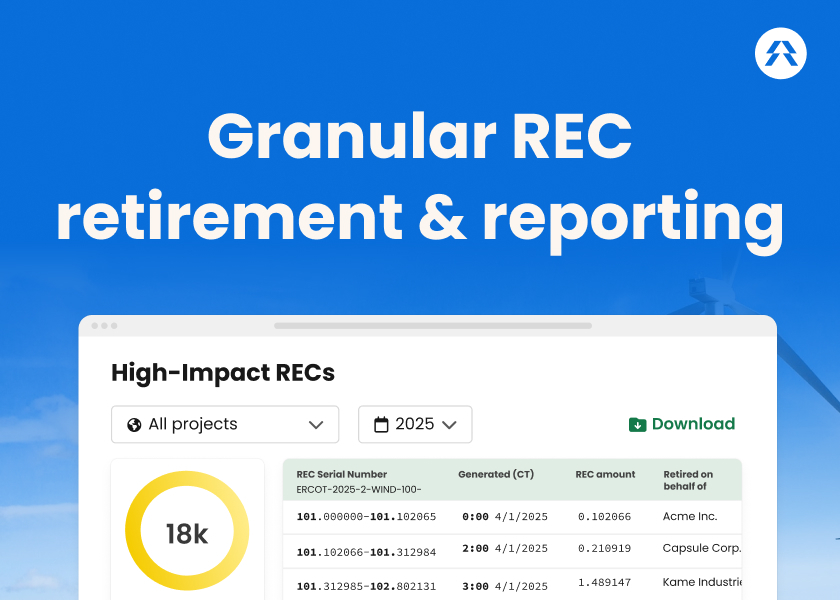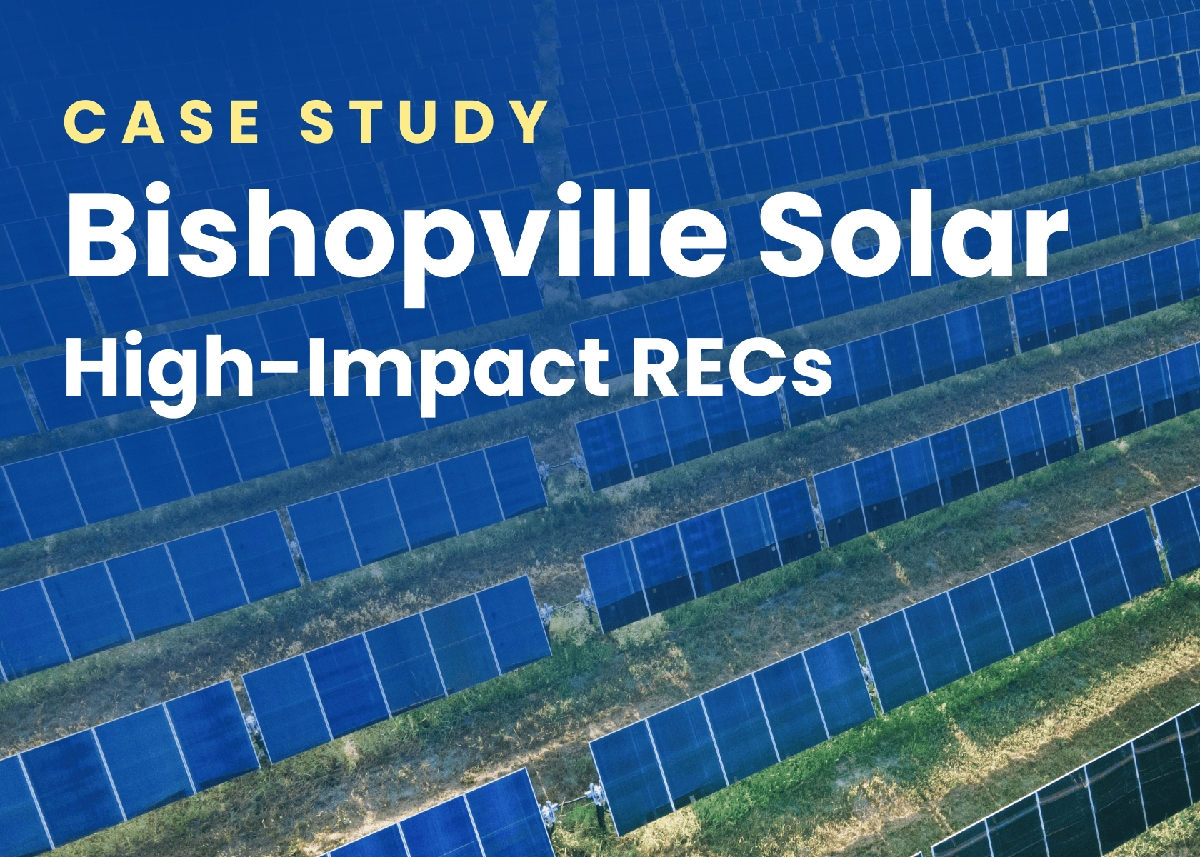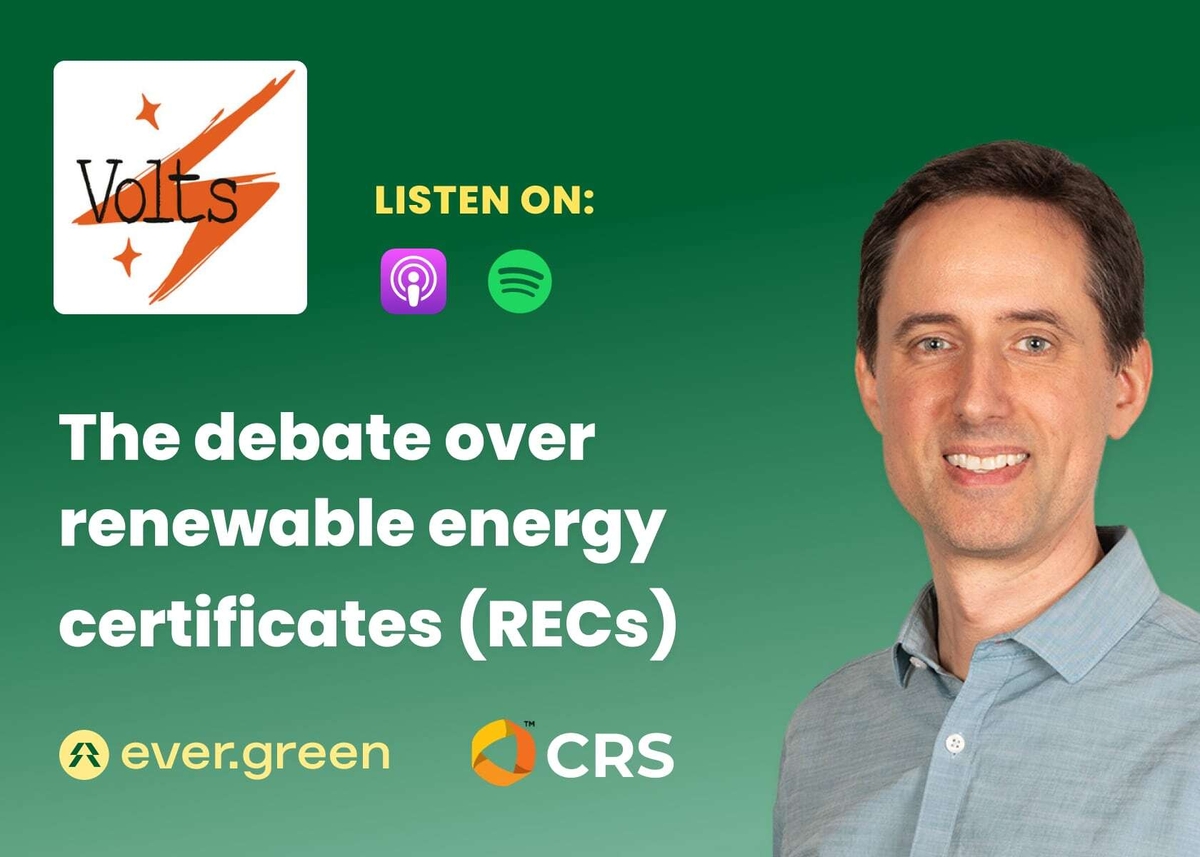Ever.green Publishes Methodology for Determining REC Additionality
The High-Impact REC white paper, was reviewed by more than 40 experts across the renewable energy industry.
May 14, 2024
Ever.green today published a white paper detailing an approach to procuring Renewable Energy Certificates (RECs) that significantly enhances their impact on the energy transition. Titled "High-Impact RECs: Applying Additionality for Renewable Energy Advancement," this publication addresses the urgent need for substantive change in the REC market to meet global climate targets.
Amid rising global emissions driven primarily by energy production, the transition to renewable energy has become imperative. Currently, over 77% of global emissions are energy-related, with a significant portion stemming from electricity generation. This white paper comes at a critical time when international efforts, such as those discussed at COP28, are pushing for a tripling of renewable energy capacity by 2030 as a key strategy to mitigate climate change.
However, challenges in financing have slowed progress. Traditional REC spot markets, while well-established, often fail to contribute meaningfully to the financial viability of new projects due to low and uncertain future prices. The over 313,000 companies that buy spot-market RECs to meet their sustainability goals have historically lacked better alternatives that can still be reliably transacted.
“Many businesses have been buying cheap, short-term, spot market RECs to substantiate their claim of running on 100% carbon-free energy,” said Cris Eugster, CEO and Co-founder of Ever.green. “But as we face the need to rapidly accelerate the energy transition, buyers are seeking products with significantly more impact that are straightforward to contract.”
"Renewable energy is the future, but current project financing mechanisms, like spot-market RECs, need revamping to truly influence global change," said Michael Leggett, Co-Founder and Chief Product Officer of Ever.green. "Our high-impact RECs ensure that every certificate directly contributes to the financing and viability of new projects, addressing the core issue of additionality in a way that traditional markets have failed to do."
Key highlights from the white paper include:
- An in-depth analysis of current REC market dynamics and their shortcomings in supporting new renewable energy developments.
- Introduction of a set of principles and a methodology for testing for additionality to ensure RECs play a meaningful role in the financial health of new projects.
- A critique of the idea that the 24x7 carbon free energy approach is the fastest and most effective way to increase the amount of overall renewable energy.
Ever.green’s approach prioritizes long-term contracts, meaningful pricing, and additionality testing to ensure that REC purchases provide substantial economic benefits to renewable projects, making them more attractive to investors and more likely to be placed in service. In addition, all projects must meet strict criteria for their broader impacts on climate, land, wildlife, and communities.
“Decarbonizing the power sector quickly is among the most clear and direct steps toward a sustainable economy. And most private companies that want to help accelerate beyond government commitments have limited credible options to participate,” said Jesse Noffsinger, a partner in global consultancy McKinsey’s energy practice. “Products and data are needed to democratize impactful clean energy purchasing; this work significantly advances the conversation and sets the stage to making that possible.”
The white paper, which was reviewed by more than 40 experts across the renewable energy industry, including representatives from Greenhouse Gas Management Institute, The University of Edinburgh, WattTime and others, is available for download at ever.green/additionality, and offers insights for policymakers, corporate leaders, and stakeholders in the renewable energy sector. Ever.green invites all interested parties to explore the potential of high-impact RECs and join in their effort to reshape the landscape of renewable energy support.
For further information, please contact Liz Pearce at liz@ever.green.
Disclaimer: The opinions and findings presented in the linked white paper, as well as any errors or inaccuracies, are solely attributable to the author and do not reflect the views or opinions of any other individual, organization, or entity. The author assumes full responsibility for the content provided and encourages readers to exercise critical thinking and independent judgment when interpreting the information presented.






